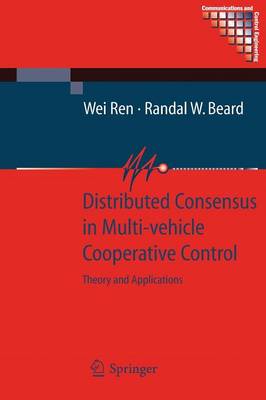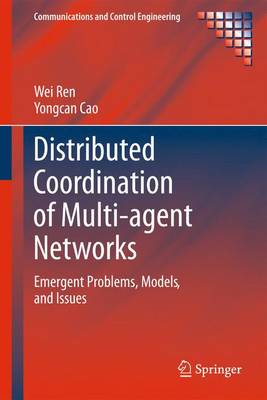Communications and Control Engineering
2 total works
Distributed Consensus in Multi-vehicle Cooperative Control
by Wei Ren and Randal Beard
Published 26 October 2007
Assuming only neighbor-neighbor interaction among vehicles, this monograph develops distributed consensus strategies that ensure that the information states of all vehicles in a network converge to a common value. Readers learn to deal with groups of autonomous vehicles in aerial, terrestrial, and submarine environments. Plus, they get the tools needed to overcome impaired communication by using constantly updated neighbor-neighbor interchange.
Distributed Coordination of Multi-agent Networks
by Wei Ren and Yongcan Cao
Published 8 December 2010
Distributed Coordination of Multi-agent Networks introduces problems, models, and issues such as collective periodic motion coordination, collective tracking with a dynamic leader, and containment control with multiple leaders, and explores ideas for their solution. Solving these problems extends the existing application domains of multi-agent networks; for example, collective periodic motion coordination is appropriate for applications involving repetitive movements, collective tracking guarantees tracking of a dynamic leader by multiple followers in the presence of reduced interaction and partial measurements, and containment control enables maneuvering of multiple followers by multiple leaders.

